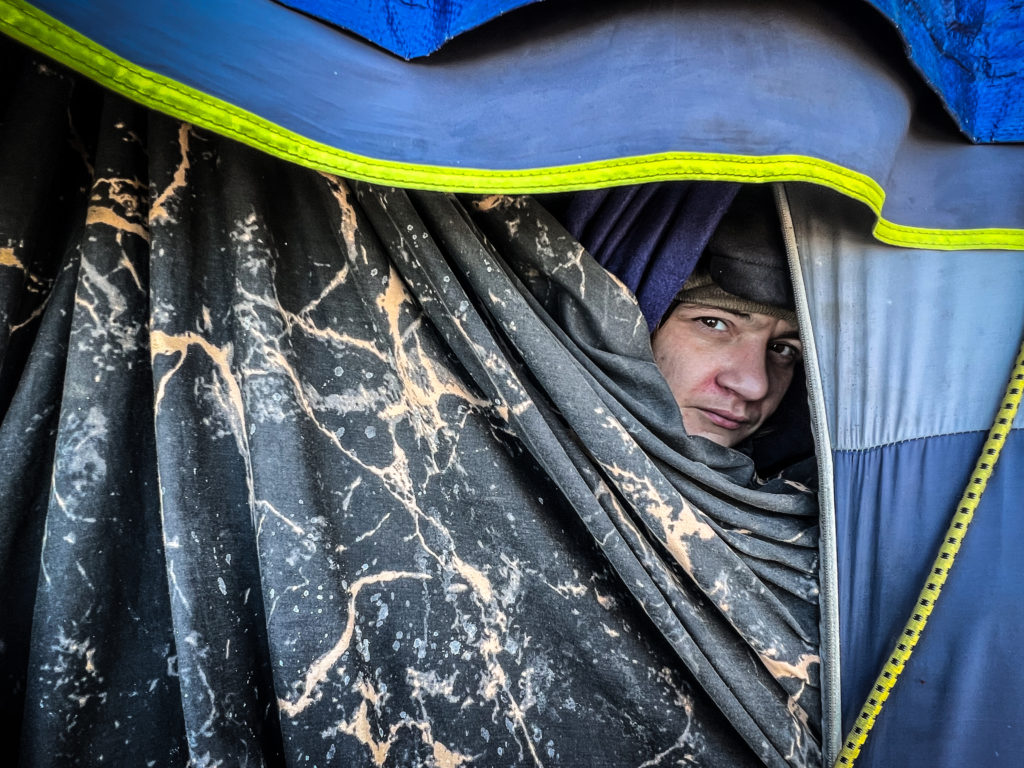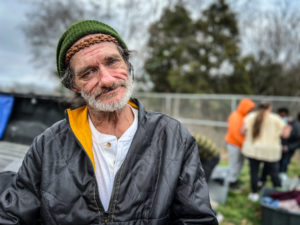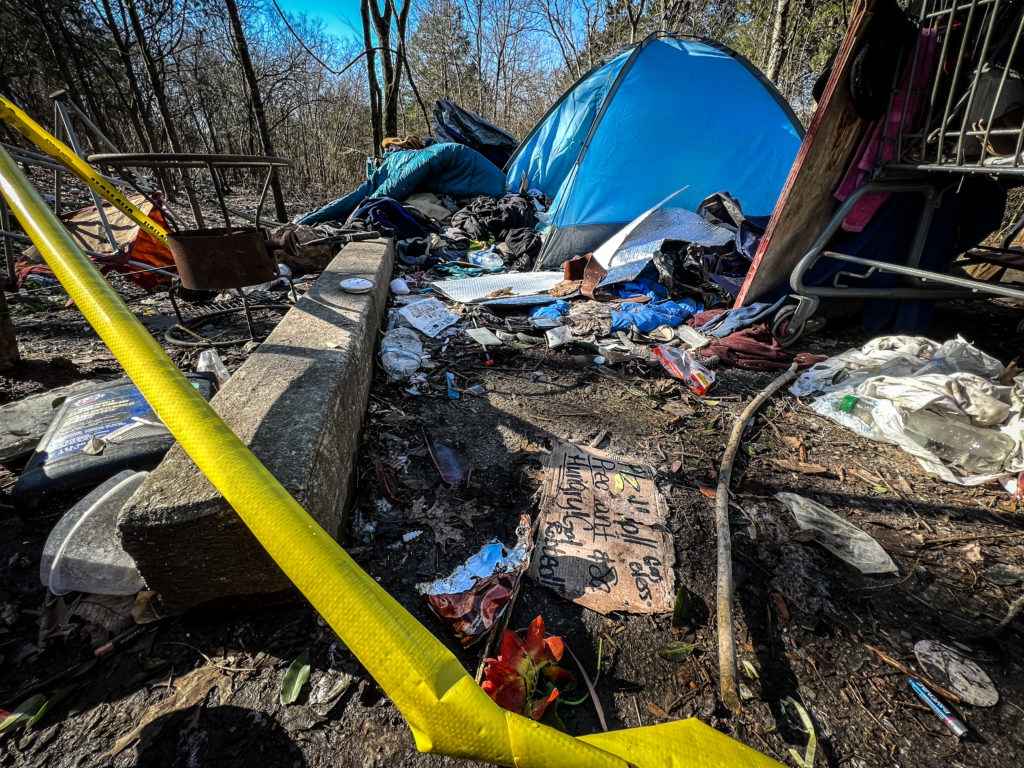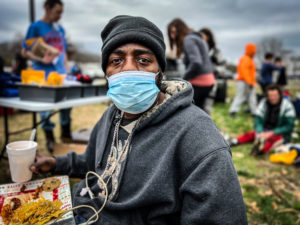
“It’s just part of life, I guess,” says Becky Salts. She’s one of the last people to leave the encampment at Brookmeade Park.
“You get used to seeing the same people every day — and they’re all gone.”
On this day in December, the sun is setting and so too is one era for the park and its encampment. For decades, people have lived here in tents, mostly just out of sight of big box stores and restaurants. But community pressure grew, pushing officials to try to make the park safer and more accessible for recreation, and Metro set a deadline of Jan. 4 to move the roughly 45 campers into housing.
Most relocated before Christmas, only returning to save the useful things they could before the land is cleared. A few pack rolling suitcases and pull them over the forest floor.
 Tasha A.F. Lemley WPLN News
Tasha A.F. Lemley WPLN NewsDavid Patterson lived in Brookmeade Park for a decade. He says once he got the option to leave, he was ready.
David Patterson says the atmosphere in the park was getting rough — “thick” is the word he uses. There’s been more violence lately, so he and his wife were ready to leave.
“I’d like to take my little treasures and go,” he says, “before me or Carrie ends up being the one screaming in the night.”
The couple was provided with two temporary living options — one in a church in Madison, coordinated by Community Care Fellowship. The other choice was a converted motel room in South Nashville where The Salvation Army is providing housing and care. They chose the motel, in part they say, because they’d be able to bring more of their belongings and keep their pets.
As an outreach coordinator with the Metro Homeless Impact Division, Joseph Parker has been at the park helping get things into storage and people into transitional housing.
“It’s been hectic,” he says, “but it’s been productive.”
 Tasha A.F. Lemley WPLN News
Tasha A.F. Lemley WPLN NewsYellow caution tape marks sites ready for cleanup at Brookmeade Park. A discarded panhandling sign at this tent reads, “Plz Help!! Pregnant & So Hungry! Got Robbed! GOD bless.”
Parker says he feels like they’ve met their goal of getting camp residents to a better place.
“We’re trying to assist every individual,” he says. “That’s our mission, and that’s what we are out here to do.”
After residents have taken belongings they want and left their tents for good, yellow caution tape marks sites that are ready for cleanup. But other campsites linger. And even some people who have multiple housing options, like Kianna Cayetano, have had trouble saying goodbye.
“This is my home, so I’m sad,” she says. “I’ve never cried this much in my entire life.”
Cayetano has lived at the park for about three years.
“A lot of people try to make us seem like a menace to society,” she says, “and I don’t want to prove them right. So go. For now … But it is gonna be a park again. I’m going to come visit, and since it’ll be cleaned up, maybe I can bring my kids here and show them where I was.”
As of this week, a few people were still staying on park property. A spokesperson for the mayor said Metro doesn’t plan to arrest anyone for refusing to leave.
“Once sites are closed, Metro departments will take the necessary steps to ensure new encampments are not able to reform, and those steps will be different for each site on a case by case basis,” said TJ Ducklo.
 Tasha A.F. Lemley WPLN News
Tasha A.F. Lemley WPLN NewsFormer Brookmeade Park resident Quontize Gordon says he’s worried about the difficult transition his community will face as they move indoors.
Brookmeade was the first place identified in what Metro calls a “housing surge effort” to move people into temporary housing. The effort is funded in part by federal pandemic relief dollars. After this park, Metro will shift focus to another encampment on Nolensville Pike.
Camp closures are just the beginning of a long road ahead for those who lived there. For many, it’s the start of a critical time of physical and mental health care. For others, addiction treatment. It’s likely some will return to homelessness.
“ I’m concerned about other people that might not be as strong as me,” says former park resident Quontize Gordon. “You’re taking us out of the jungle and sending to the desert. You’re taking a person that’s been here for eight years, uprooting him and telling him, ‘This is where your new home is now.'”
For the people who have left the park, Metro says daily meals and case management are provided. But the adjustment to life indoors isn’t easy — and neither is their next step: finding permanent affordable housing in a city where it’s becoming increasingly scarce.

